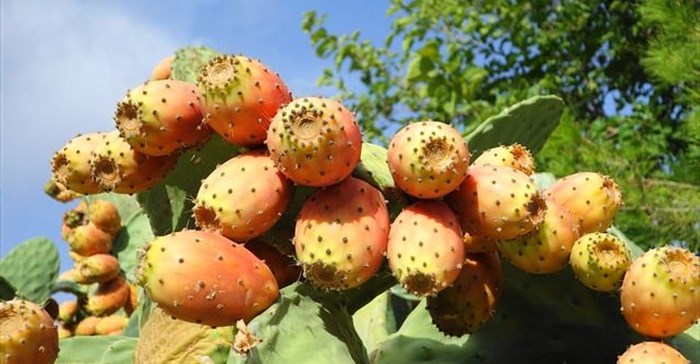A large portion of Africa's people relies on several indigenous plant species for subsistence. These plants are often primary food sources for people and animals and are also used for other non-food purposes. Most are farmed as food crops and are preferred by indigenous people and farmers. They are often hardy and tolerant, which means that they can be expected to survive better under varying climatic conditions.

miguelibars via
pixabay - Prickly pear
But their agricultural importance is undervalued and they often play second fiddle to more commercial crops. Referred to as “Orphan Crops” – they are not classified as major crops and are under-researched and underutilised. Examples of orphan crops are: African persimmon, marama bean, prickly pear, guava, and marula.
Diversifying global food sources with orphan crops can be a vital tool in combating food and nutrition insecurity that are worsened by global change. Orphan crops have the ability to battle a range of stresses like droughts and extreme temperatures. But invasive species also threaten their survival.
Invasive plant species such as lantana, chromolaena (devil weed) and Parthenium sp. (famine weed) are aggressive competitors. They displace indigenous species and encroach on farmland. Also, they affect the composition of soil, making it unsuitable for orphan crops.
Besides climate change and invasive species, an additional threat to orphan crops is the lack of representation of these crops on the global market as well as the dearth of investment in orphan crops research. Most research funds from the public and private sectors are invested in the major arable crops such as maize, rice and wheat, which are considered economically important in the west.
Better perceptions
More than 95% of the global population’s food needs relies on maize, rice and wheat; with global food security dependent on fewer than 30 plant species. Essentially, people have lost interest in the use of indigenous crops for food and prefer the more costly commercial crops, despite high rates of poverty. If perceptions of these orphan crops were improved, poverty in Africa could be better managed. The dependence on major crops is disconcerting considering that Africa has its own crops.
There’s a rice crisis in western and central Africa, money and resources are being invested in policies around rice. This doesn’t make sense considering that the majority of the traditional dishes in this region are mostly orphan crop species like yams, finger millet, favabean, and bambara groundnut.
Indeed, there’s a growing realisation that Africa needs to focus on its indigenous and endemic crops. The New Partnerships for Africa’s Development (NEPAD) has recognised the need for the promotion of food systems that include indigenous and orphan crops to diversify diets beyond staples such as rice.
NEPAD, and its partnerships, is driving research that aims to improve the diets and livelihoods of 600 million people living in rural sub-Saharan Africa. Through the African Orphan Crops Consortium (AOCC), 101 African crop species have been identified as important food crops to be researched by 2021.
Time to mobilise research efforts
It’s important to mobilise research networks within African academic and research institutions to understand the agricultural and economic value of orphan crops. Also, the focus on invasive species research in other African countries outside of South Africa, needs to be prioritised.
It is also important for African researchers to equip each other with the appropriate skills for combating invasive species in order to protect food security. Since the older school of researchers in South Africa are often disinclined to engage with the rest of the continent, it’s therefore up to the new generation of young researchers to bring knowledge creation back to Africa.
 The only way to change this, is through fair collaboration and knowledge exchange. In so doing, we can tackle the threat of climate change and invasive species on the continent’s food security using new and holistic approaches.
The only way to change this, is through fair collaboration and knowledge exchange. In so doing, we can tackle the threat of climate change and invasive species on the continent’s food security using new and holistic approaches.
This article was originally published on The Conversation. Read the original article.













